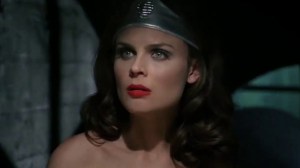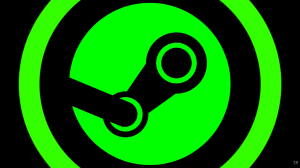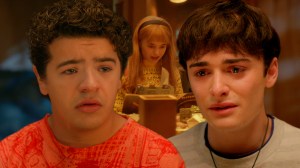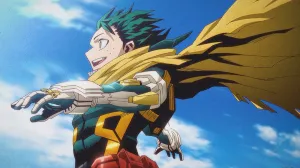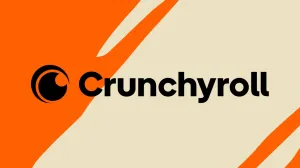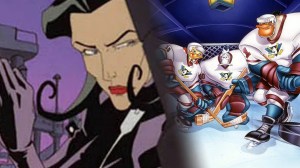The first season of Black Summer debuts on Netflix today, bringing audiences worldwide a truly one-of-a-kind zombie tale. The series, which serves as a prequel of sorts to SYFY’s Z Nation, follows a disparate group of people in the early days of the zombie apocalypse, as they quickly come to terms with what they need to do to survive. At the center of it all is Rose (Jaime King), a mother whose life gets turned upside down in the pilot’s opening minutes.
Videos by ComicBook.com
All in one fell swoop, Rose is separated from her daughter as they try to make it to safety, and quickly learns that her husband is infected with the show’s mysterious virus. It’s a scene that’s simultaneously engrossing, terrifying, and heartbreaking, and sets the tone for the journey that Rose and the other survivors will soon be embarking on.
King is no stranger to the genre world, previously starring in films like My Bloody Valentine 3D and Sin City, and lending her voice to Star Wars: The Clone Wars and Transformers: Power of the Primes. But Black Summer, which King also serves as a producer on, proved to be a completely unique storytelling experience. ComicBook.com got a chance to chat with King ahead of Black Summer‘s debut. In part one of our interview, we dive into how the series reflects reality, the various horror influences, and what she hopes viewers get out of the show.

ComicBook.com: I got to check out the first few episodes, and I really enjoyed them. I was wondering if you could describe Rose for our readers, and what exactly drew you to playing that part?
Jaime King: Oh man. Everything. When I read the script, it was one of the most interesting scripts I’d ever read. And that’s totally true, I honestly can say I never read anything like it. I was out of the country when I read it, and I immediately got on the plane to fly back, ’cause I was like, “I have to meet this writer, this director. I have to do this.” What I loved about the script is that immediately when I read it, I couldn’t breathe. It felt like I was reading something that would happen on the news in real life. It felt like the overwhelm of our country in America and everything that we’ve been dealing with, that this was in the story. When I read the scene when I get ripped away from my child, I was like, “Oh my God.” And it was happening right when kids were getting separated from their parents at the border. There are all of these very strong and clear symbolic tie-ins in our script, in all of them, that were deeply personal to what’s going on in the world right now.
And then on top of that, there’s this element and this mystery, because they weren’t called zombies in the script. There was a sickness, an outbreak, and there was no backstory. We didn’t know. When Rose gets to the checkpoint, she’s just trying to get to the checkpoint. It’s like when you hear about Katrina and you don’t really think it’s going to come to you, but it’s a tragedy. And then all of a sudden, they’re like, “You have to evacuate.”
And then you evacuate, and then you go to the next place and you think it’s gonna be fine, and then all of a sudden, you have to go to the next place. And then, you’re trying and the government’s shutdown and it’s a mess, but there’s no Internet, there’s no water or power. So we don’t even know what’s happening or what we should be afraid of, other than there’s something. People are getting sick, and we gotta get to the checkpoint. A lot of the time in storytelling, we give everything away, to the point where we forget that the audience, and the imagination of the audience, is so important.
That’s why I had so much respect in connecting to this script. And as a mother who has been through so much with her children, it was a love letter to them. It was a love letter to the strength of what it meant to be a mother and that there’s nothing that we will not do for our children.
I’m so glad you mentioned the real-world context of it all, because I totally felt that watching the early episodes. That scene you mentioned in the pilot, where your daughter gets taken away, was just so impactful.
I’m so glad you can say that, because that’s why it was written. When I first talked to [co-creator] John [Hyams], I think we spoke for eight hours, and I was like, “Tell me, why did you write this?” And he’s like, “I wanted to write a love letter to my wife, and to the strength of what I saw her go through when she was pregnant with our first child. And I always wanted to do that.” And then Trump got elected, and he was enraged by the stuff that he was seeing, as many are. And the injustices and the way that the very fabric of who we are as a nation is being ripped apart through hatred and not listening to each other, and not understanding and having to pick sides. That’s what this show is about. When I asked him about that scene, he said, “When I saw that. I knew I had to write it.”
The beautiful thing about what I love about this show is that it’s truly a genre-blending, bending, dramatic and true story that is told like a visual novel. I really believe in windows and mirrors and storytelling, meaning we have to have cultural competency. Which is why it’s so important that we have diversity, and that we have everybody represented on the screen, especially when you’re telling a story like this. Because that way, each person that watches it, can see themselves reflected into it.
The questions that I had with John about, “Hey, how is violence going to be handled?” Because when I read it, his script was so impeccable. All the music, I could hear his music. I could hear the sound design, it’s like I could hear the bird in the trees. And it didn’t seem gory or anything like that. So I asked, “Is it gonna be Hitchcockian?” And he said “Well, you know when you hear a car crash, and then you turn around to see it? It’s like that.” Immediately, I was like “All right, I’m in.”
Because I didn’t want to make a show that was some gore fest. Trust me, I love genre and I’ve done horror and I’ve done all kinds of things. But as a citizen and as a mother, I wanted to be on the same page as him and tell a story that had all of these different kinds of elements, but in the most suspenseful, honest way possible. He’s just such a brilliant filmmaker that it was that and even more.

You mentioned that you dabbled in the world of horror before, and I was curious if that had an impact on how you approached the project. Just beyond like a sociological standpoint, did it kind of prepare you to take on like this kind of a horror story?
It’s interesting, because I didn’t ever think about it as horror. Because it never read as horror, right? When in the script it talked about outbreak and people getting sick. Our killer makeup artist and chief special effects spent months studying MRSA and Ebola, and worked for months to get the makeup perfect for John. Because when you actually look at when people get sick, this really actually happens. The attack on the immune system, on the lymphatic system, everything was perfectly placed. The bleeding of the nose and the ears, and when they vomit and its blood. That actually happens and it’s terrifying. And I think it was more of the horror of the fact that it was still real, that I just prepared it as I always do, which is like a straight up, intense drama.
The closest thing it felt like, to me, that I could compare it to — because before you shoot, you’re like, “OK, what else is like this?” — and I was thinking about Edgar Wright, and I sent him a message about how he took on blending genre into the world.
I find it really important to ask different questions and look at serving everybody. Because people that know me know I love genre. They know that I love Star Wars, they know I love Dungeons & Dragons, and I’m like really into very specific things. It’s just really rad that when people see this, they will get what they want: they will get this horrifying, intense experience, with these moments of levity and beauty. They will get the horrific genre aspect of it, and they’ll get the fun from it too.
There’s a reason why genre and horror and drama work right and aligning them. It’s because we just need, audiences right now, they just need that scare. When you’re scared and you release chemicals in your brain and in your body, and I think there’s something to that right now. I think that we just need that right now, because we want to be just taken out of all the shit that’s going on. There’s just too much stress in life right now. So I think that genre plays a very important part in that.
*****
The first season of Black Summer is now available on Netflix.
This interview has been edited for clarity and length.

